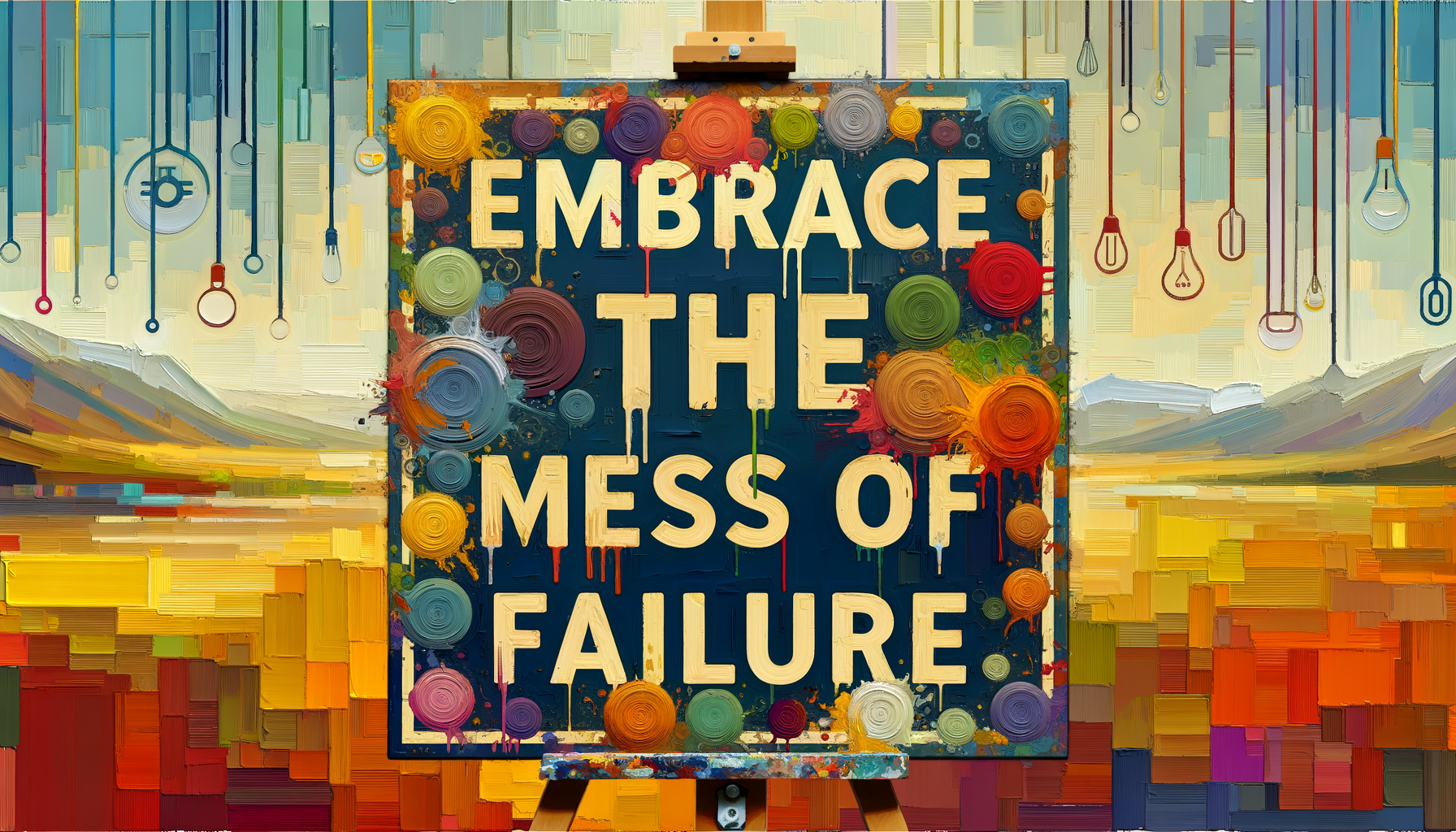Here we go:
If there’s one thing failure teaches you, it’s humility—or, in my case, how to make a U-turn in front of a street full of gawking strangers. But I’m getting ahead of myself. My first big failure wasn’t some tidy, metaphorical stumble I could conveniently wrap into a TED Talk about “fail forward” philosophies. No, it was messy, expensive, and came with a steaming side of existential dread. Let’s set the scene.
The Dream I Couldn’t Afford
In my early 20s, I was convinced that my ticket to self-actualization was becoming a published novelist. You know the type: brooding but approachable, signature leather jacket, sipping espressos in cozy cafés while readers lined up for my autograph. My idea of dramatic flair was basically a mix of Michael Ondaatje and every moody indie movie character ever—but with way worse finances.
Armed with my freshly minted English lit degree, I spent months crafting my first great literary endeavor: a novel I was sure would be hailed as the second coming of The English Patient. Its central struggle was Very Serious Stuff™—the moral compromises of gentrification, set against the backdrop of a hyper-stylized Toronto. Could love survive the brutal reshaping of urban landscapes? I didn’t know, but I was determined to find out before rent was due.
When I finally finished the manuscript, I did what any overly confident, underprepared writer would do: I printed ten hard copies from the most expensive boutique press in the city. Why? Because I believed the way to a publisher’s heart was through glossy, embossed title pages.
Spoiler alert: it’s not.
Rejection Season, Population: Me
The rejections arrived almost immediately. At first, they came with gentle platitudes: “promising ideas” and “come back to us in a few years.” Encouraging, right? Not so much when the only thing harder to pay off than your student loans is the $200 you splurged on fancy manuscript copies. Eventually, the platitudes stopped. Publishers and agents turned into ghosts whose only hauntings were bounced emails. My friends started sending me friendly texts like, “Hey, still working on your book stuff?”—that’s code for “Are you avoiding reality, or just screenings of La La Land?”
Here’s the thing people don’t tell you about rejection: It’s never just professional. Sure, I could tell myself that rejection emails weren’t personal—pro forma niceties don’t know I cry at Ratatouille when Remy proves food critics wrong—but deep down, I felt gutted. Not just about the novel, but about myself. I wasn’t just failing at writing; I’d convinced myself that I was failing at being someone.
The Comeback Plan: Spoiler, I Didn’t Have One
When your "big dream" bursts into flames and you’re left standing in the smoke, it’s easy to start looking for someone—anyone—to blame. Some of my friends blamed the publishing industry, calling it a monolith of gatekeeping and creative snobbery. It’s like how people universally blame Mercury retrograde any time they trip over a sidewalk crack. Valid, but not super helpful.
To everyone’s credit—including my patient, slightly worried parents—I did what millennials do best: I pivoted. Within weeks of shelving my novel, I signed up for a half-doomed scheme. Some friends and I put together an indie writing collective that hosted readings in slightly shady Kensington cafés (fire codes may have been breached). Attendees mostly consisted of each other’s extended cousins and anyone lured by free Timbits. But it brought me to a key realization that would eventually reshape everything: writing doesn’t have to succeed immediately—or even visibly—for it to matter.
I know, I just hit you with Hallmark energy, but hear me out. Writing those bad manuscripts, leading shaky readings, and sharing personal stories made failure feel like a shared human reality rather than something to hide or “fix.” Stories weren’t just about performing grand success; they were about connection.
Lessons Failure Whispered (Well, Yelled) Into My Ear
Here’s what the great flop of my 20s taught me, aside from not blowing my credit card limit on embossed title pages:
-
Passion needs fuel, not frenzy. Loving the thing isn’t enough if you’re too burned-out to engage with it. Sometimes, stepping back doesn’t mean you’re giving up; it means you’re reigniting. Take walks! Look at weird TikTok videos of dogs wearing sunglasses! Trust me, breaks work.
-
Fail publicly if you can. There’s a kind of poetic horror in putting yourself out there, but it’s way easier to recover when you laugh at yourself alongside others. Readers at my cramped live readings threw more cheer my way than I could’ve imagined, even when my metaphors were about as subtle as a fast-food jingle.
-
Define success for yourself—over and over again. My younger self thought success meant landing a six-figure book deal (live and learn, right?). Now I think success looks like consistently showing up for the work and feeling proud I tried. It’s not exciting on a billboard, but it is sustainable.
-
Community beats isolation. My indie collective eventually folded (a long-winded story involving a coffee-stained laptop and two petty arguments about who borrowed whose thesaurus), but by then I’d met so many creators living their truths, however glam or not-so-glam. Those people reminded me that rejection doesn’t diminish your worth.
Today’s Failure Is Tomorrow’s...Well, Detour
Here’s the kicker: a few years after that initial crash-and-burn, something wild happened. I dusted off my manuscript, rewrote half of it (read: murdered a lot of precious darlings), and submitted it to a small press. This time, no embossed title pages. Just me, a simple email, and a little nudge from the universe. A few months later, they accepted it.
No, it didn’t hit bestseller lists, and no, Michael Ondaatje hasn’t endorsed it (yet). But strangers messaged me on Instagram to tell me they’d read it—and that something about my Toronto resonated with them. And for the first time, I stopped seeing the process of failing and retrying as linear. It isn’t start, fail, succeed. It’s a spiral—or maybe a set of city alleyways where lessons echo back in bits and pieces.
A Final Word: Embrace the Bomb
So, this is the part where I leave you with a rah-rah motivational one-liner, right? Here it is: embrace the bomb and rebuild anyway. Do the thing so badly someone might watch like it’s an experimental performance art piece. Take a chance big enough to break you just a little, because you’ll recover.
What matters isn’t producing something perfect. It’s growing through the cracks you thought would swallow you whole. And hey, if you ever spiral into failure town, I’ll save a seat for you at my reading. First coffee’s on me—just not the fancy embossed kind.




















